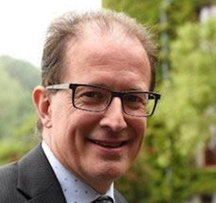Food Systems Podcast 84
Insights from the Forum’s Annual Conference: Interview with Jurgen Tack
Monday, Sep 22, 2025
In this edition of the Food Systems Podcast, recorded at the Forum’s Annual Conference 2025, Alex Turk talks to Jurgen Tack, Secretary-General of the European Landowners’ Organization.
Here is a summary of the conversation.
You’ve just been involved in the discussion on Financing the Transition. How important were the voices on the panel that you heard today?
We heard a good mix of possibilities, from market instruments like carbon farming and biodiversity credits to the role of subsidies and profitability. Profitability is often lost in the discussion, but it is the most important aspect of any farming activity in Europe.
You’ve been a critic of subsidies and there are flaws in the system where you reside. Do you feel that there is progress being made?
A system that has needed subsidies since 1962 needs to be questioned. The Common Agricultural Policy (CAP) changes every seven years, but a farmer’s investment cycle is 30 years. This shows why subsidies are still needed. We have to start thinking about a longer-term system with less subsidies and higher profitability for farmers.
You talked about where the money should go for nature-based solutions at scale. Who deserves it the best?
When we talk about subsidies, we often look at those who need it the most, which tends to be small-scale farms. However, objectives for productivity and sustainability are often not reached on those smaller farms. For me, the money should go to those who are truly contributing to the objectives.
Moving productivity to link it to environmental issues always has quite loud, heated voices, would you say? The dial hasn’t moved much on EU greenhouse gas emissions. Has the debate moved much?
The debate is certainly moving faster than reality, but that’s often the case. The technical and scientific solutions are there; our task now is to ensure they are implemented in the field.
When you hear voices that come from the other side of the Atlantic that shout of a protectionist agenda, how does that impact your members?
Having a global market is extremely important because it keeps things in balance. Overproduction on one continent can be used by another. Trade barriers and tariffs are never a good thing for business because they prevent optimized growing and trade.
What particularly struck a chord with you from some of the other voices on the panel?
I heard almost everyone systematically promoting carbon and biodiversity credits. I’m in favour of carbon credits, but the European Commission is making the system so complicated that private companies are leaving the market. I would prefer to be called a “greenwasher” and do something rather than doing nothing and not helping to create a more sustainable future.
How important and relevant is the voice of the Forum now in its 17th year?
The forum remains important because we still have a high-level policy public in the room, and the audience continues to grow. It is the one moment in the year where we are able to bring these voices together and get a good overview of upcoming topics to be discussed.

Jurgen Tack
Jurgen Tack studied biology (marine ecology) at Brussels Free University where he also obtained his PhD in...see more

